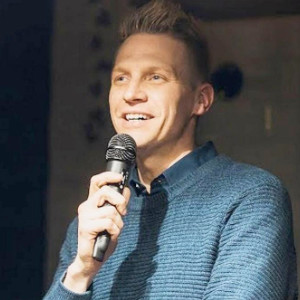Procrastination is an obvious obstacle to performing at our best, right? After all, if you don’t do the work, you won’t improve or accomplish your goals. Yet procrastination still seems to plague most of us.
And there are a myriad of things we can do to win the procrastination battle, from introducing a powerful evening and morning routine, to reclaiming 28% of our day through single-tasking – and I’ve certainly tried them all!
In fact, I used to be a terrible procrastinator. I even had a collection of books about procrastination that I bought in 2000 and procrastinated on reading until 2010. As a result, all of my success seemed to come packaged with a lot of unnecessary stress and pain. Often I would imagine how much progress I could have made if I had just picked up the books ten years earlier! One of those books was The Now Habit by psychologist Neil Fiore, and reading it quite literally changed my life. I was so moved by what I read, and so fed up with my procrastination habit, that I emailed Neil and hired him for sixteen one-on-one sessions to cure my procrastination. Neil taught me many things, and here are four in particular that helped transform me from a procrastinator to a super producer.
Positive self-talk
One of the most impactful things Neil taught me was to examine how I spoke to myself when I procrastinated. When you feel yourself beginning to procrastinate, verbalize what’s going on in your head at that moment. You’ll probably be saying something along the lines of I have to or I must. This is the language of oppression, Neil pointed out, and suggests you’re being forced to do something you don’t want to do. Being forced to do anything creates resistance, which manifests as procrastination.
Neil taught me to change from the language of oppression, negative self-talk, to the language of choice, positive self-talk. Whenever I felt the urge to procrastinate I would swap the I have to voice in my head with I choose to. You may not want to do a particular task, but you can always still choose to do it. This choice creates agency, helping you feel in control. Since you’re not being forced to do something, you’re less likely to employ procrastination as a self-defense tactic.
Focus on starting
We also unknowingly trigger procrastination by focusing on finishing rather than starting. If you were to continue the I have to sentence in your head, it’s often followed by the word finish- as in, I have to finish writing this report. Focusing on finishing can be overwhelming, triggering procrastination once again. Instead build on your language of choice by focusing on starting for a small amount of time. Neil taught me to say the following to myself: I choose to start for just five minutes. Do I actually stop working on a task after just five minutes? Only rarely. If you can just get yourself to start, often you’ll get absorbed in what you are doing and keep going. I call it getting lost in the deep. A lot of writers and creators call it flow. Whatever you want to call it, starting is the hardest part, and finishing often takes care of itself. It’s all about creating momentum and continually finding moments to start. As the saying goes, The hardest part about running is putting on your shoes.
Centering
Before starting a period of quality, distraction-free work, I complete a sequence of deep breaths. It goes like this: first, take three breaths to relax. Then take three breaths to let go of the past, and another three to let go of the future. Lastly, take three breaths to remind yourself how easy it is to take a vacation in the present. You don’t need to be anywhere or do anything other than what you’re doing in that moment. Gently open your eyes to the task at hand, and choose to start for just five minutes. When I first learned this, I would have to constantly recenter every ten to fifteen minutes. It’s much easier now, but it does take some rewiring of your brain. And if you stick with it, it works.
Guilt-free play
Scheduling your free time helps fight procrastination because it gives you something to look forward to. It also makes you aware of how little time you actually have. I’m much more likely to buckle down and get things done when I know I only have a few precious hours to work with. I also like knowing that, afterward, I get to do something fun like hang out with my family or friends.
Don’t schedule just your fun time. Schedule your health time, break time, sleep, etc. You’ll feel great knowing you’ve looked after yourself, while feeling more motivated to use your time productively.
So take a shot at employing the handful of techniques above and show your procrastinating-self the door. It won’t happen overnight, but little by little you’ll transform into the super producer you are capable of being.
“
Share via:


















































